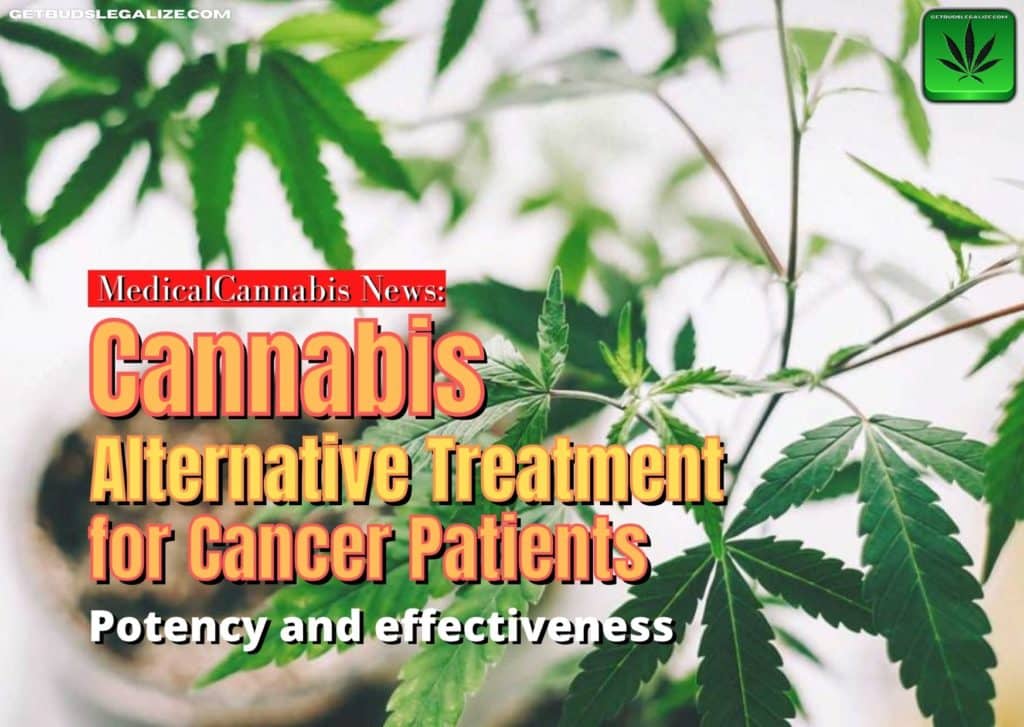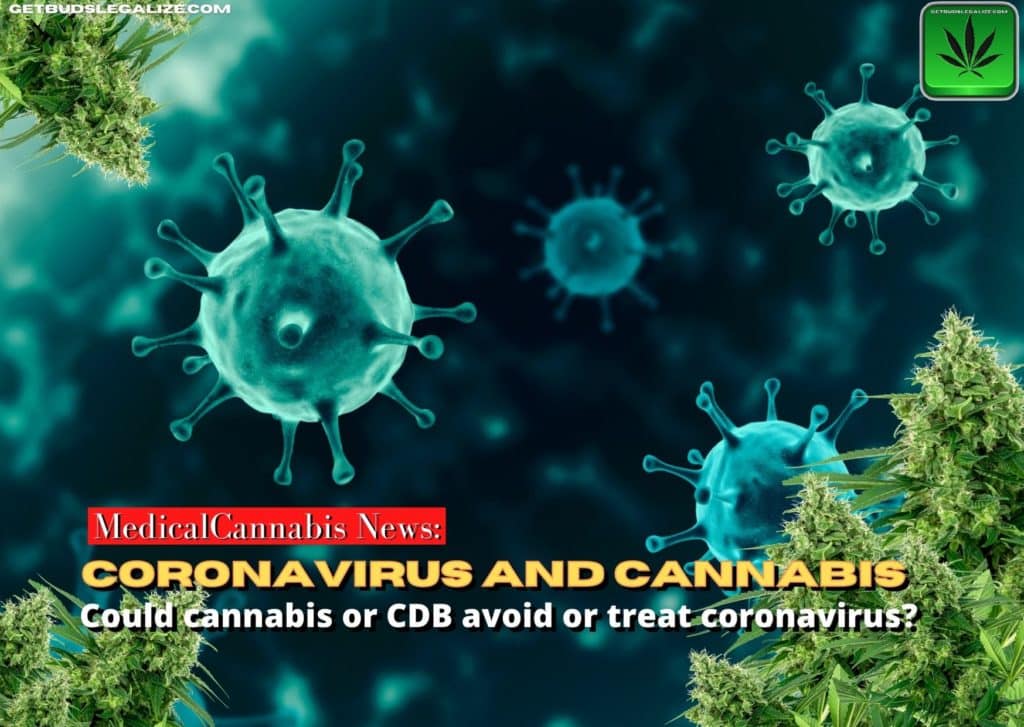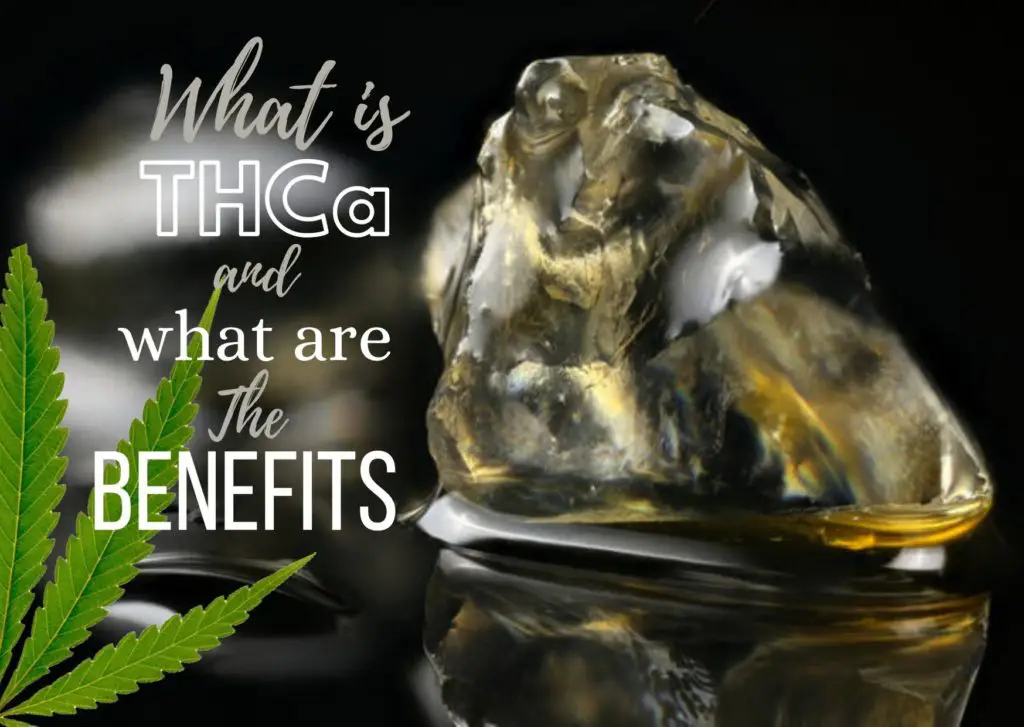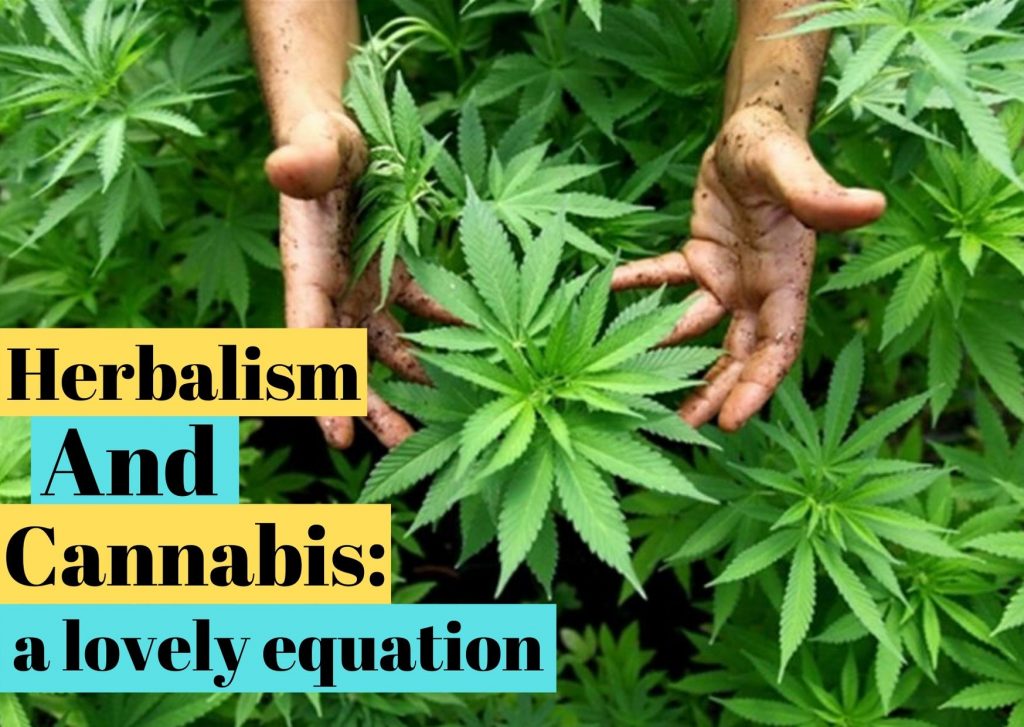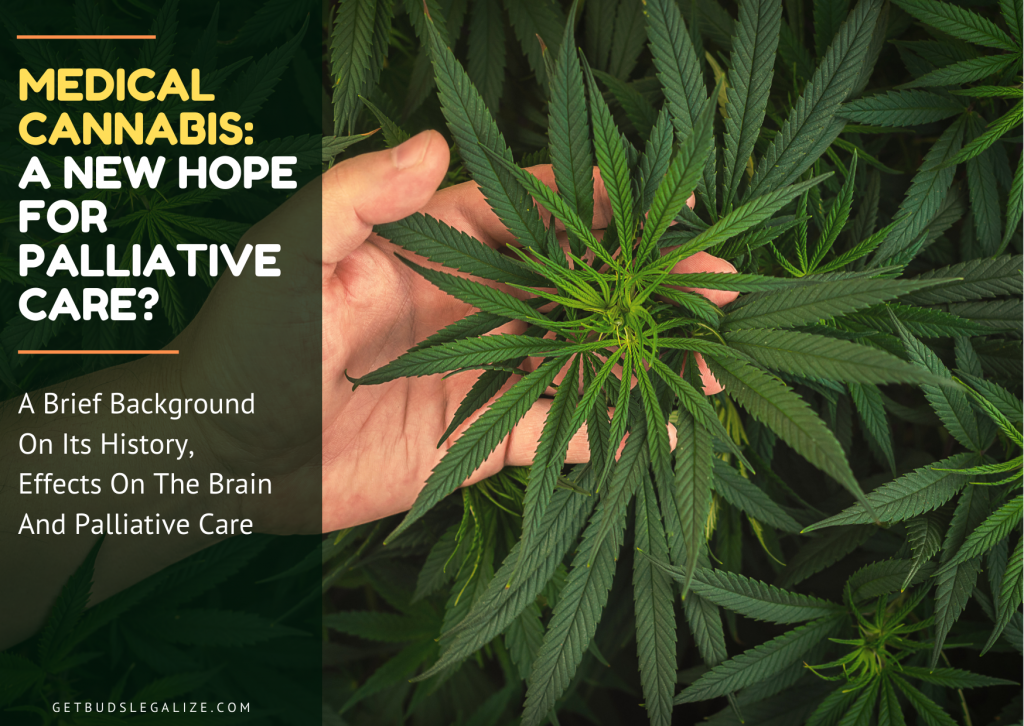How To Treat Asthma With Cannabis: What Can And Can’t Do It
Asthma is a chronic respiratory disease that affects millions of people worldwide and can cause up to 1000 deaths per year. Cannabis has been used for centuries in various medicinal traditions, including ancient India and China, as a means of treating asthma symptoms.
However, there is much controversy surrounding the use of cannabis to treat asthma due to concerns about its safety and effectiveness. In this context, many patients wonder whether they can smoke cannabis despite asthma symptoms.
This article aims to provide answers to these questions by exploring the benefits of cannabis for asthmatics and what you can and can’t do about it.
What Are The Potential Benefits Of Cannabinoids on Asthma?
There has been research into the effects of cannabinoids like CBD and THC on asthma and how they interact with the body’s endocannabinoid system (ECS). The ECS is a complex feedback network found throughout the body responsible for regulating and balancing key bodily functions, including sleep, mood, appetite, electrical brain activity, pain perception, and more Still. Cannabinoids such as THC and CBD activate CB1 and CB2 receptors, which are found in the ECS.
In a 2019 study, researchers evaluated the effects of CBD on airway remodeling through CB1 and CB2 receptor mechanisms. The study demonstrated that CBD treatment was effective in minimizing the inflammatory response and structural changes that characterize the asthma remodeling process in an ovalbumin-induced mouse model of allergic asthma. These effects appear to be mediated by an interaction involving the activation of CB1 and CB2 receptors. This means that the researchers were able to reduce inflammation and airway remodeling in mice with allergic asthma by activating CB1 and CB2 receptors.
A 2020 study published in the Israel Medical Association Journal reports case studies of three asthma patients who showed improvements with medical cannabis. In addition to inhaling THC and CBD, the results showed that cannabis has a bronchodilator effect on the airways and could have an inflammatory effect on asthma patients. The authors’ literature review argues that CB1 in the lungs can regulate smooth muscle tone, and CB2 is found in immune cells in the lungs that are responsible for modulating airway inflammation.
Research also supports the benefits of cannabis for associated conditions such as anxiety, exercise-induced asthma, and smoking cessation. In a 2018 study, researchers explored the case for CB1 receptors as a target for bronchodilator therapy for β-agonist-resistant asthma. With time and more studies, it will be concluded whether medical cannabis can relieve asthma symptoms with oral or vaporized administration, giving children and adults suffering more hope for this debilitating condition.
What Are The Symptoms of Asthma?
Asthma is a chronic respiratory condition that can cause a range of symptoms. The most common symptoms include shortness of breath, tightness or pain in the chest, and wheezing when exhaling.
These symptoms can be especially bothersome at night and can lead to insomnia, as they can make it difficult to breathe, cough, or wheeze.
Additionally, coughing or wheezing attacks can be triggered or worsened by respiratory viruses, such as the cold or flu.
If you experience any of these symptoms, it is important to see a doctor to manage your asthma and prevent further complications.
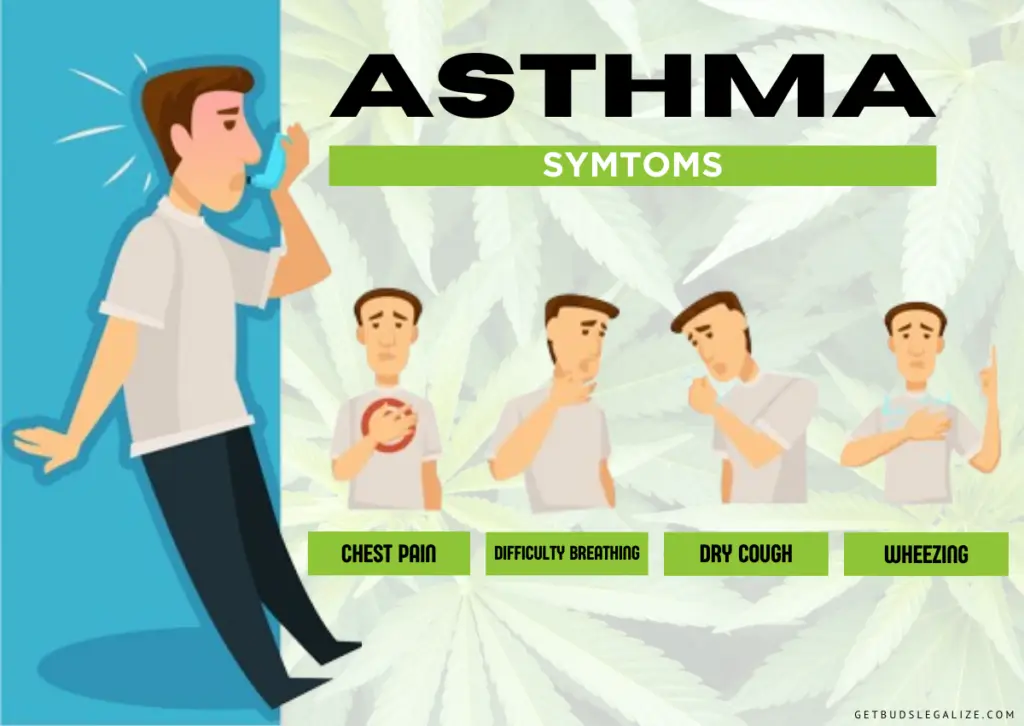
How To Treat Asthma With Cannabis: What Should I Do?
1. Choose to Vape Instead of Smoking
Cannabis has the potential to relieve asthma symptoms, but the effectiveness of different consumption methods varies. Additionally, using less asthma-friendly methods may not be entirely safe.
When considering the use of cannabis for asthma, it is important to prioritize safety, immediate relief, and the ability to control dosage and effectiveness.
If you suffer from asthma, it is highly recommended that you avoid smoking cannabis as it can worsen your symptoms and even trigger an asthma attack. Instead, you can try edibles as they may be a viable solution, although they may take some time to take effect and may not be reliable in emergencies. In case of an emergency, it is best to vaporize cannabis as it minimizes the risk to the lungs and releases the cannabinoids into the body optimally.
It should be noted that smoking cannabis is not harmful to the average, healthy human body. However, if you have asthma, it’s important to pay attention to anything that may irritate or negatively impact your respiratory system.
2. Learn How to Vaporize Cannabis Correctly
Consumers who use cannabis recreationally tend to have one goal when they start vaping: to inhale the vapor. Over time, most people develop a satisfactory vaping method.
However, when vaping for medical reasons, it is critical to inhale a sufficient amount of vapor without causing further irritation to the airways. A violent coughing attack can turn a distressing attack into a life-threatening one in a short space of time.
To vaporize correctly, take small, quiet “drags” from the vaporizer, as if you were sipping a thick milkshake. The idea is to establish a calm vaping/breathing rhythm. Take a puff from the vaporizer through your mouth, followed by three normal breaths (through your nose if possible).
Inhale the vapor for 3-5 seconds; any more than this becomes too much. Hold the vapor in your lungs for a second, then exhale calmly.
3. Select the Best Vaporizer Device Possible
It’s important to make sure your vaporizer is of good quality, even if you only use it for recreational purposes. Using a low-quality or inadequate vaporizer can result in the substance burning rather than vaporizing, which makes the entire experience pointless.
Additionally, if you use a vaporizer to manage respiratory illnesses, a low-quality vaporizer may be more of a hindrance than a source of relief.
While portable vaporizers are appealing due to their portability, smaller vaporizers are more likely to have lower performance or lack important components. Home vaporizers generally perform better, but some portable vaporizers can also be useful.
4. Optimize Your Vaping Experience
Optimizing your vaping experience can be easy once you find the vaporizer of your dreams and master the vaping pace that works best for you. However, even the smallest things can become obstacles to your experience.
To avoid the most basic consequences that vaporization can have on the respiratory system, it is important to always have with you the necessary elements to counteract them.
To prevent an itchy or dry throat, always keep a large bottle of water on hand and take sips regularly – don’t wait until your throat starts to itch or cough. To avoid straining your lungs, start vaping at a lower temperature, such as 180°C (360°F).
You can increase the temperature if necessary but do not exceed 220°C (430°F). Too hot airflow is not recommended for the lungs. To prevent inhaling plant material, make sure your vaporizer accessories include mesh filters to prevent debris from reaching your lungs. This is especially important if you suffer from hay fever, a common sister disease to asthma.
It is also important not to rub your eyes after handling cannabis flowers if you suffer from hay fever.
Finally, to keep your vaping equipment as clean as possible, use alcohol and lint-free cloths.
5. Customize Your Vaporizer With a Water Pipe
Many vaporizers, especially those used at home, have the necessary connections to be connected to another device. To enhance your vaping experience, connect a water hose to the vaporizer and inhale through the hot water.
However, it is vital to ensure that the water does not get too hot, as this could have the opposite effect.
If you feel like your lungs are congested with mucus, it’s best to opt for a dry vaping session. Warm, dry air is good for your lungs.
Cannabis And Asthma: What Not To Do?
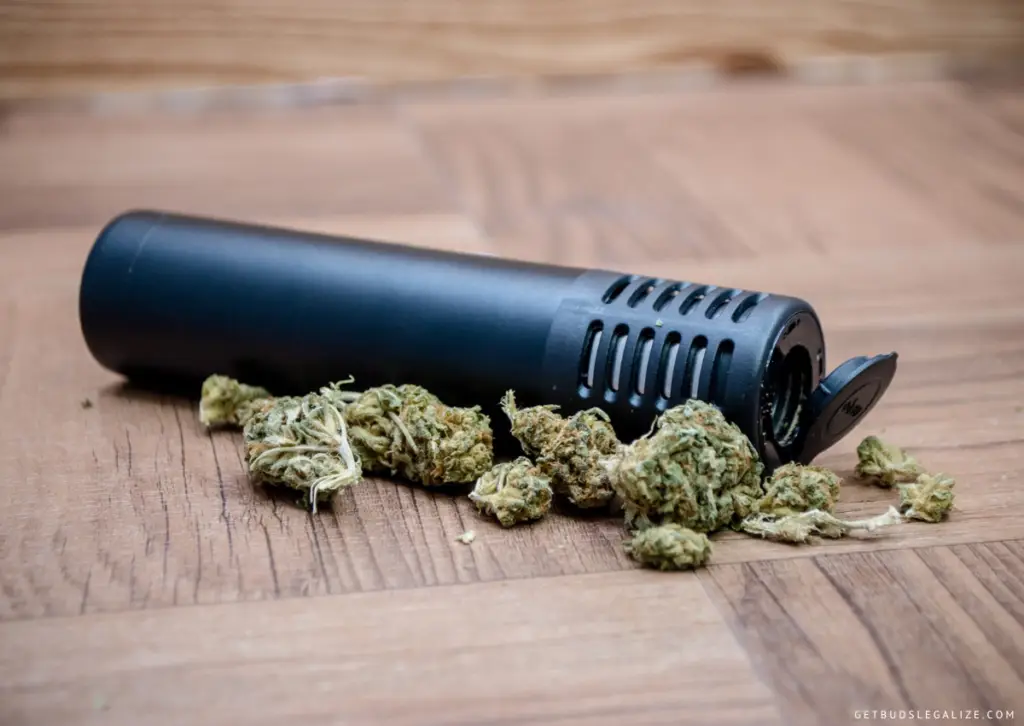
1. Don’t Prioritize Your Desire to Treat Yourself With Medical Marijuana Over Your Life
We understand the appeal of finding a natural, non-invasive solution to medical problems. However, it is not advisable to rely solely on medical marijuana as a lifesaver. Just as you shouldn’t rely solely on one inhaler for your health, it’s important to keep inhalers on hand.
If you experience a critical asthma-related problem, it is important to remain objective and consult a doctor if necessary. Don’t try to convince yourself that you are healthy and always prioritize your safety.
2. Do Not Mix Medical Marijuana with Tobacco
Smoking tobacco can be extremely harmful to your lungs, especially if done for a long time. For those who suffer from asthma, tobacco smoking can have immediate negative health effects.
Additionally, depending on the severity of your asthma, smoking marijuana can also be harmful. A safer alternative to smoking marijuana is using a vaporizer, which can provide the desired effects without the dangers associated with smoking.
3. Do Not Use Cannabis Dabs for Medicinal Purposes
The practice of dabbing is becoming increasingly popular, and medicinal cannabis dabs are also gaining ground. However, when it comes to asthma, dabbing is not a suitable option. This is because dabbing is not the same as vaping and can potentially overwhelm the lungs.
Additionally, the high potency of most dabs can be dangerous, especially if you are already experiencing high levels of stress and anxiety.
4. Don’t Give Up on Pharmaceutical Treatments for Asthma
It can be tempting to give up medications completely, especially when cannabis produces positive results for asthma. However, relying solely on anecdotal evidence, like this article, is not enough to ensure safety in all asthma-related situations.
Asthma is inherently unpredictable and depends on a variety of factors, such as environmental conditions, dietary habits, and even psychological states. Paradoxically, even a small panic attack triggered by the realization that your inhaler is missing can cause an asthma-related problem.
It is important not to underestimate the various effects that prescription drugs can have on you, including the placebo effect.
5. Choose Wisely When You First Try Cannabis
It is not advisable to wait until asthma first appears before trying medications. Instead, it is advisable to experiment with medications in a quiet, safe environment when you are not experiencing serious breathing problems.
It is important to gain sufficient knowledge about your body and how it responds to different degrees of cannabis intake. This means that you should be prepared to counteract any problems that may arise due to your lack of experience, such as coughing or inappropriate dosing.
Once you have a clear understanding of the impact vaping can have on you, you can gradually begin using it to relieve symptoms such as shortness of breath, wheezing, and tightness in the chest. It can also aid in recovery after a severe attack and even help counteract a full-blown asthma attack.
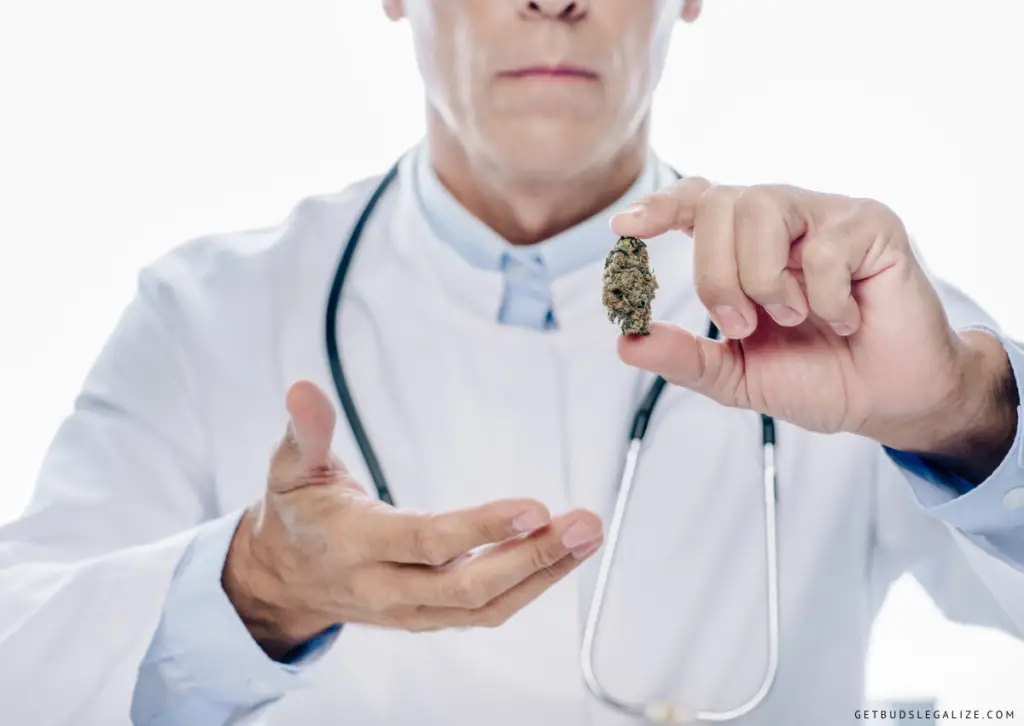
Should People Who Use or Smoke Marijuana Talk to Their Doctor?
The answer is yes. People who use or smoke cannabis should talk to their doctor for several reasons.
First, talking to a doctor can help you determine whether cannabis is right for your condition and needs. A doctor can evaluate your medical history, symptoms, medications, allergies, and other factors and recommend the best method, strain, dosage, and frequency of cannabis use for your situation.
Secondly, talking to a doctor can help prevent potential drug interactions or complications from cannabis use. As previously mentioned, cannabis can interact with some asthma medications or other medications and affect their effectiveness or safety. A doctor can advise you on how to use cannabis safely and responsibly and monitor your progress and response to treatment.
Third, talking to a doctor can help you access legal, quality-controlled sources of cannabis. Depending on where you live, accessing cannabis may require a doctor’s prescription or permission from a licensed provider. A doctor can help you obtain the documents and directions to access legal dispensaries or clinics offering tested and regulated products.
Finally, talking to a doctor can help reduce the stigma and misinformation surrounding cannabis use. Many people may feel hesitant or ashamed to talk about their cannabis use due to social pressure or fear of judgment. However, talking to a doctor can help you feel more comfortable and confident about your choice of treatment and educate them on the facts and evidence behind cannabis use.
FAQs about How To Treat Asthma With Cannabis
There is evidence that cannabis may have anti-inflammatory effects on the lungs. A 2015 study found that THC reduced airway inflammation in mice with allergic asthma.
Another 2019 study found that CBD reduced lung inflammation and improved lung function in mice with acute lung injury.
However, these studies were conducted on animals and not humans, so more research is needed to confirm the effects of cannabis on human lung inflammation.
There is evidence that cannabis may have bronchodilator effects, meaning it can widen the airways and improve airflow. A 1975 study found that smoking cannabis increased airway conductance in healthy volunteers and people with asthma.
Another 2014 study found that vaping cannabis improved lung function in people with chronic obstructive pulmonary disease (COPD).
However, these studies were small and had methodological limitations, so further research is needed to confirm the effects of cannabis on human airway relaxation.
There is insufficient evidence to support the use of cannabis as an effective treatment for asthma treatments. While some people may experience relief from cannabis, others may experience worsening symptoms or adverse effects.
Smoking cannabis can irritate the lungs and trigger coughing, wheezing, or bronchospasm. Vaping or ingesting cannabis can also cause side effects such as dry mouth, red eyes, increased heart rate, anxiety, paranoia, or difficulty coordinating.
Cannabis can also interact with other medications used for asthma, such as corticosteroids or bronchodilators. Therefore, it is not recommended to use cannabis as a substitute for medications to treat asthma without consulting a doctor.
The legal status of cannabis varies depending on where you live. In some countries, cannabis is illegal for any use, while in others it is legal for medical or recreational use. In the United States, cannabis is illegal at the federal level, but some states have legalized it for medical or recreational use.
However, cannabis laws and regulations vary from state to state and may change over time. Therefore, it is important to check the current laws and regulations in your area before using cannabis for asthma or any other purpose.
Yes, you can be allergic to cannabis, just like you can be allergic to any other plant or plant product. Cannabis allergies can be triggered by exposure to pollen, smoking, or skin contact with the plant.
Symptoms of cannabis allergy may include nasal congestion, eye inflammation, coughing, and wheezing. Skin contact with marijuana, including the hemp version that is sometimes used in clothing, can cause eczema or hives. In more severe cases, including anaphylaxis, allergic reactions have been reported.
There is a 2019 study that looked at the effects of CBD on airway remodeling in mice with allergic asthma. The study showed that CBD can help reduce inflammation and structural changes in the airways. This effect is achieved by activating the CB1 and CB2 receptors.
However, there is insufficient evidence to support the use of CBD oil as a standalone treatment for asthmatic patients. While CBD can help reduce inflammation and relax muscles around the airways, it should not be seen as a replacement for conventional asthma therapy.
ILGM Fertilizer
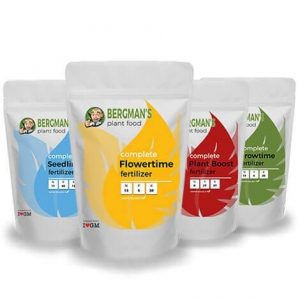
- From seedling to harvest, give your plants everything they need.
- Enough for feeding at least 5 plants.
- Discounted Package Deal
- Works well in soil, hydroponics, and other growing mediums.
- The best way to treat your plants
ILGM Plant Protector
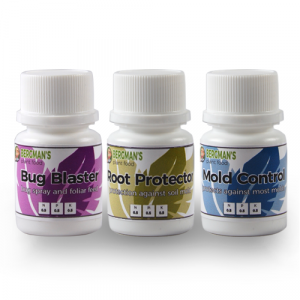
- Protect your cannabis from diseases and harmful pests.
- Contains three 20 ml bottles.
- Enough supplies to protect 20 plants.
- It can be used in soil, hydroponic, and all other growing mediums.










